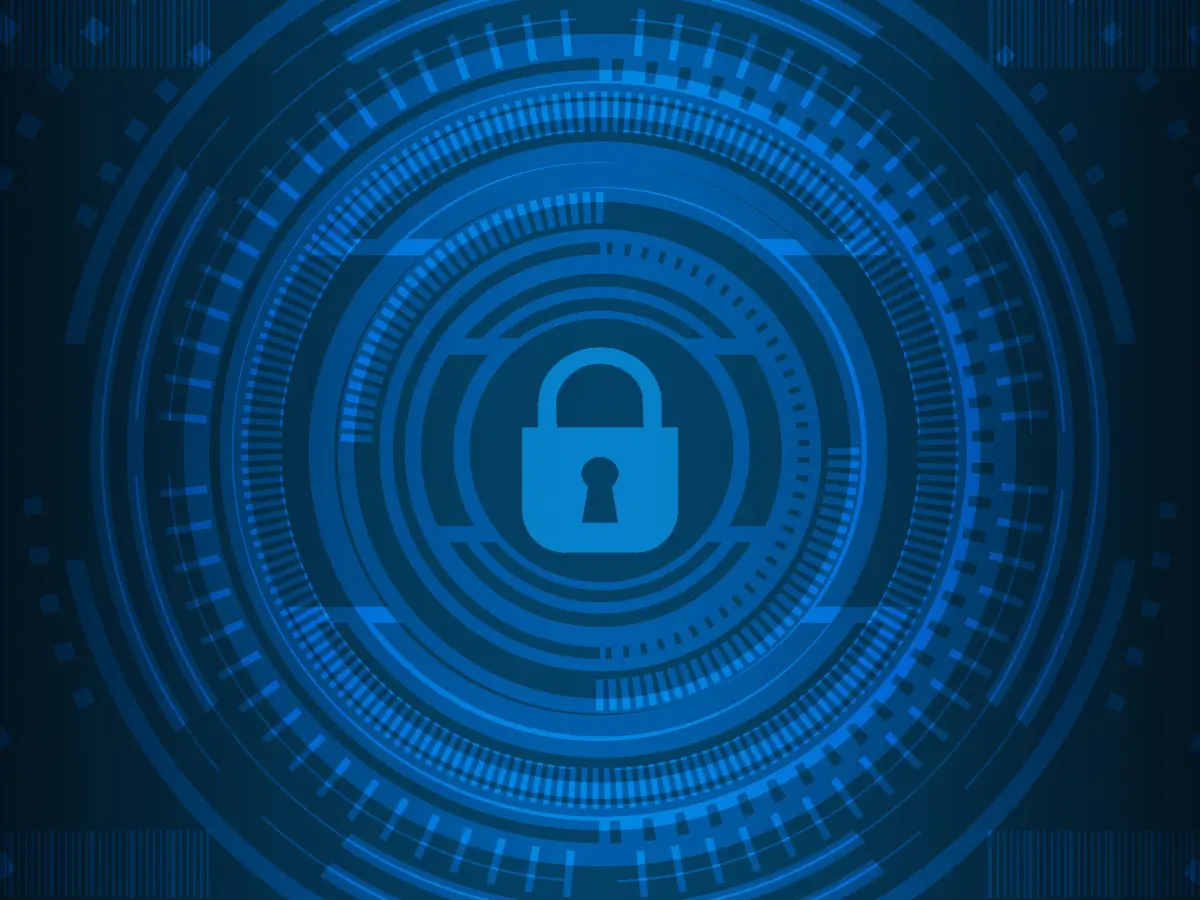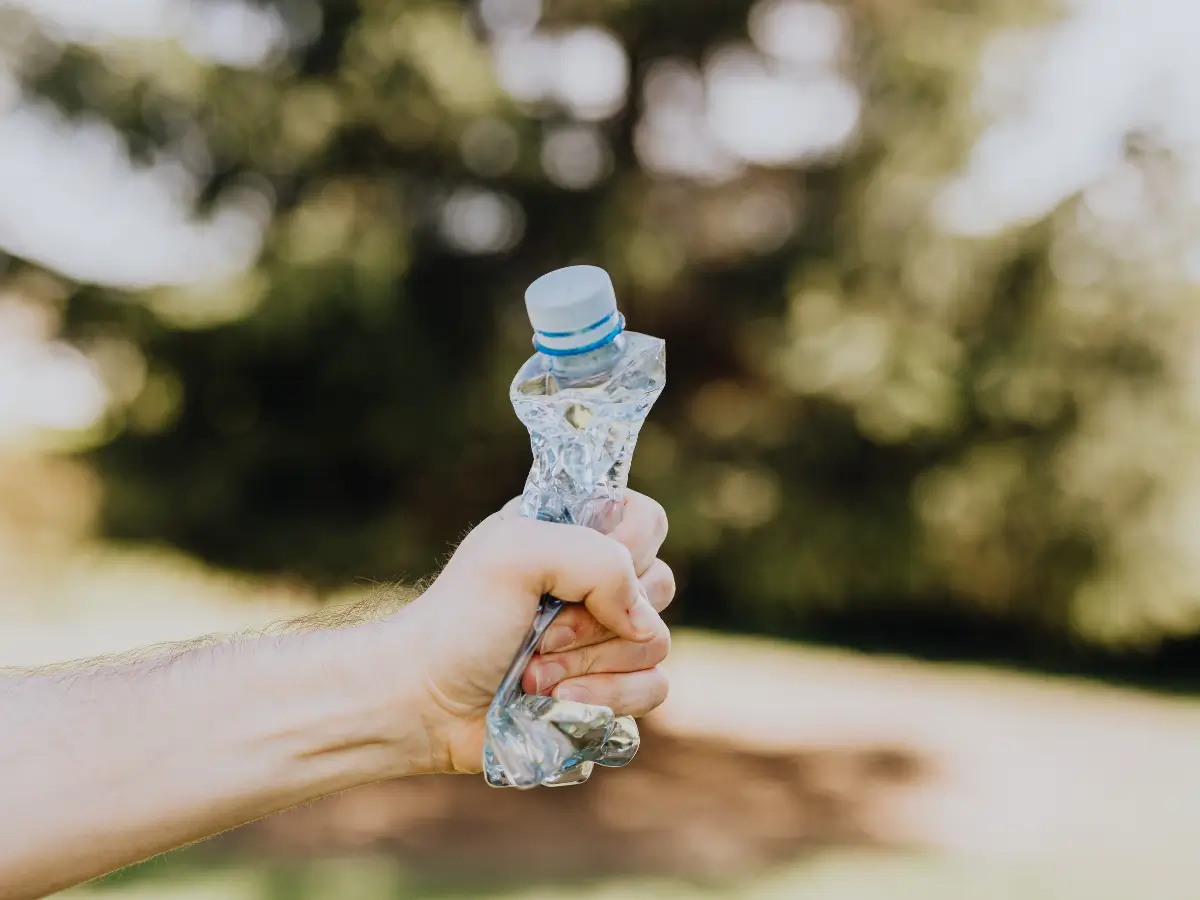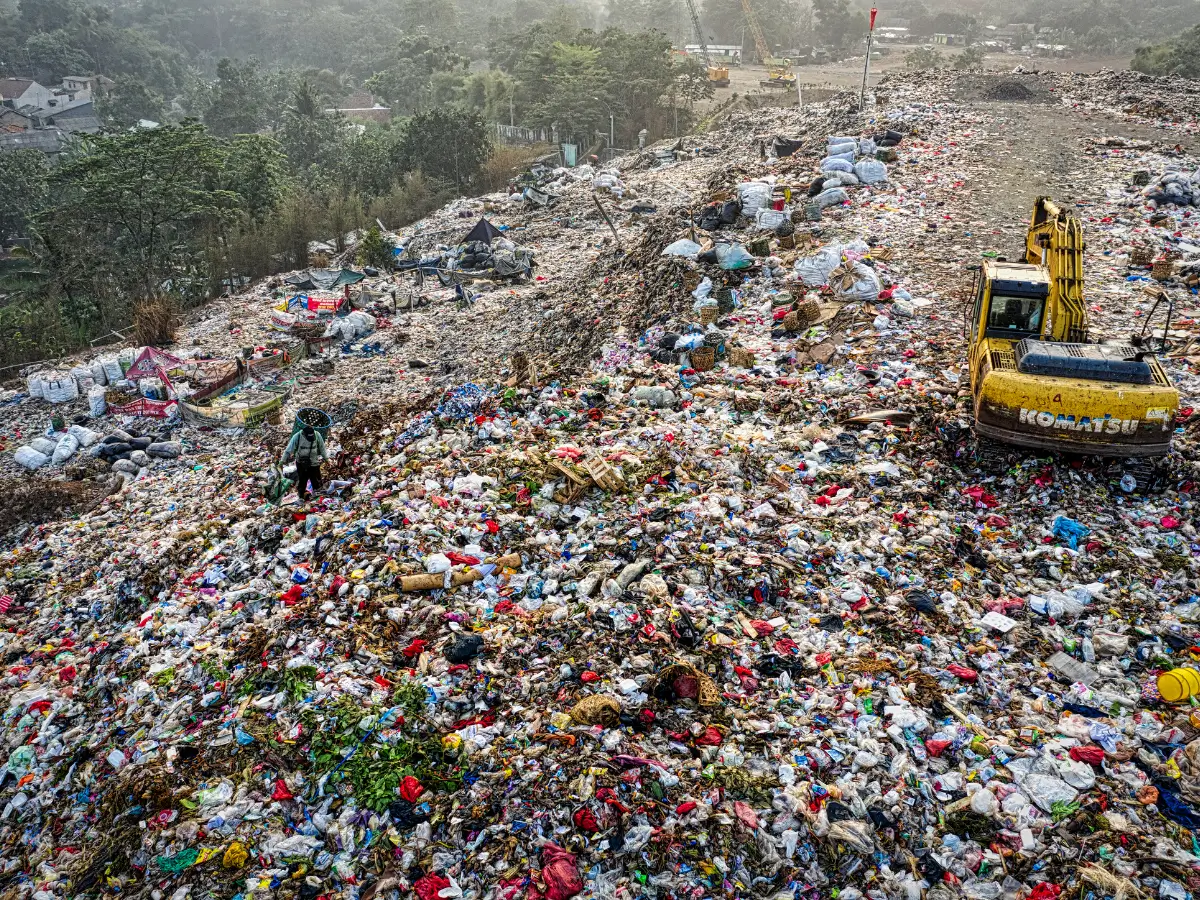Welcome to the Recyclepedia
Ever heard of wish-cycling? It’s happened to all of us. You’re about to dispose of something—maybe a greasy pizza box or an old plastic bag—then you realize you’re not so sure where it should go. So, you hope for the best and toss it into the recycling bin. Wishing you can recycle something doesn’t make it so. Learn more about commonly misunderstood materials and why they need to be treated with care.
Search What Goes Where — Stop Wish-Cycling and Start Recycling Right
Keep learning
Read on about recycling best practices, sustainability tips and tricks, and how to make your household eco-friendlier.

Recycle Coach Is Now SOC 2 Type I Certified
As we grow, our new SOC 2 certification demonstrates that our systems are secure and reliable for our clients' data.
As Recycle Coach continues to grow, so does our responsibility to safeguard the data entrusted to us by our partners across North America. We’re proud to share that Recycle Coach successfully completed a SOC 2 Type I audit, performed by independent auditors at Sensiba LLP (Sensiba).
For waste management leaders navigating procurement, cybersecurity review, and public accountability, this milestone provides meaningful validation that our systems are designed with security and reliability in mind.
What is SOC 2?
SOC 2 is an independent audit framework that reviews an organization’s internal controls to determine if they are suitably designed to meet the American Institute of Certified Public Accountants (AICPA) Trust Services Criteria. Recycle Coach aims to demonstrate that we are an organization that can be trusted with our partners’ data and security needs.
What’s Next
Now that we have successfully completed SOC 2 Type I certification, we are now actively preparing to complete Type II to further demonstrate that our security practices are not only well-designed, but are followed, measured, and continuously improved.
We are excited to proceed with this next step in improving our security measures to continue serving our 1,700+ partners effectively, efficiently, and safely.
“As we push the industry forward with modern digital tools for waste and recycling programs, we’ve been equally focused on building a strong foundation around security and compliance. Completing SOC 2 Type I reflects that commitment and underscores the responsibility we take on when supporting municipalities, haulers, states, and higher-education institutions.”
- Jeff J. Galad, President of Recycle Coach

Changing Recycling Behaviour: The Importance of Effective Outreach
When you have a community that's unsure of proper recycling practices, it's easy to get lost in the overwhelm of educational outreach. Blending outreach tactics and methods is an effective means of reaching a community whose recycling behaviour is falling by the wayside.
When contamination rates are high and your municipality’s staff are inundated with ongoing phone calls from residents asking about picking up bulky items, what items go where, and missed pickups, it’s easy to get overwhelmed and have other important tasks put on the back burner.
High contamination rates and high call volumes aren’t inevitable; they’re signs of a community that is trying hard to do the right thing by disposing of their waste properly. They just need to learn how.
The Pitfalls of Relying on One Method of Outreach
What’s holding your residents back isn’t just one thing: it’s a combination of learned behaviour and lack of clear access to information. And one major stumbling block we notice is when municipalities rely on one method of outreach over all others.
Social Media
We hear this time and again: “We use Facebook to reach our residents.” Although it still has three billion monthly users, Facebook has become less of an informational platform and more of a shopping, chatting, and entertainment platform, with many users—particularly Gen Z and Millennials at 23% of users—visiting it solely to scroll through reels or to use its Marketplace and Messenger features. Organic reach is declining, with paid ads taking up more space on users’ homepages; organic posts only have a 0.06-0.31% engagement rate.
As more Gen Z and Millennials become homeowners, reaching these demographics is essential, and it can’t be done by relying solely on a platform that has declining organic reach.
Posting across several platforms may have a wider reach, but relying only on social media might not serve your municipality well. It’s not necessarily on residents’ radars to follow their local municipality or hauler. Even if they do follow your municipality’s page, the algorithm might not work in your municipality’s favour; not only can it prevent new users from seeing your municipality’s posts, but it can also prevent existing followers from seeing them. Algorithms are based on sets of data and rank posts by the following elements:
- Engagement
- Relevance and Personalization
- Platform goals
- Algorithm Training
This means that what users are most likely to see is from pages that are already popular, relevant to their location, in line with what the platform wants to promote (i.e. post format), and related to what the user has previously shown interest in.
For example, Instagram’s algorithm prioritizes reels and carousels over other posts. Combining that with the algorithm prioritizing larger accounts and interest level regarding page posts, smaller municipalities’ social media pages can be overlooked.
Despite all of this, there is still value in having a social media presence. Many of your residents are on social media and may navigate to your page to learn more about their local waste and recycling program—particularly if it’s being promoted elsewhere. Social media works best when posted to frequently and used in conjunction with other methods of outreach, such as in-person events and traditional media. Use social media to promote events, and—in return—promote your municipality’s social media at these events and through mailers and handouts.
Traditional Media
Reaching users through traditional means—such as flyers, brochures, and newspaper ads—can be an effective way to disseminate information, but there is a disconnect here: residents need the opportunity to interact, ask questions, and provide input. While your team may have a wider reach sending out paper materials, the fact is that mailers can quickly end up in the trash and ads are skimmed over by readers. Impersonal mailers provide little incentive or motivation for residents to learn about their community’s waste program.
To truly reach your residents, a blend of outreach methods is needed to find what works for your community. This can look different for everyone depending on their community. Our partners in Las Cruces, NM engage youth in their community by visiting schools every year; our partners in Mercer County, NJ host "recycle nights” with their residents; in Centre County, PA, they reach their residents where they are with ads on coffee cups, at popular venues, and on municipal vehicles.
With attention spans shrinking to a median of just 40 seconds, municipalities are learning that they need to put increasingly more effort into captivating their residents’ attention.
Broadening Your Reach
Layering your tactics means employing a range of outreach efforts to most effectively reach a wider audience. This doesn’t just mean social and traditional media: it means getting out into your community and interacting with your residents too. Finding a reliable means to reach your audience is essential to informing your residents, and it can take some experimentation.
In advertising, there exists a “rule of seven": a theory that a potential customer needs to see an advertisement seven times before they consider making a purchase. Similarly, residents need to see a piece of information several times before it sticks. And when the information is available and in front of your residents, it’s important to ensure that it is clear and understandable. Providing spaces and opportunities for residents to provide feedback is one way to involve your residents and know if the information you’re putting out there is something they understand.
Experiment with reposting on social media, sending out regular flyers, advertising in community spaces, frequenting community events, and becoming more involved in the goings-on in your community. Increasing your presence and implementing a blend of tactics and channels will ensure your team is meeting your residents where they are.

How Waste Education Enables Communities to Reduce Waste and Recycle Better
When residents aren't educated on how to properly dispose of waste, contamination and landfill rates go up. Waste education makes a measured difference.
Recycling is a complicated pain point in the waste sector. It’s something most residents don’t realize; recycling rules used to be simple and straightforward, and many think they still are. But with the global market changing in 2018, municipalities have taken over the recycling process and much of the responsibility for ensuring materials are recycled properly is now on the consumer. And when the consumer isn’t educated, contamination rates are high and recycling rates are low.
Further complicating educational efforts is the introduction of Extended Producer Responsibility (EPR). A policy intended to shift responsibility away from municipalities and residents, EPR aims to hold producers responsible—physically and/or financially—for products in the post-consumer stage. As producers’ requirements will differ from municipalities’, this will change recycling rules and education, disrupting municipalities’ current means of educating their residents on proper recycling practices.
The Importance of Community Recycling Engagement
Globally, 2.1 billion tonnes of municipal solid waste (MSW) are produced annually. That number is projected to rise to 3.8 billion tonnes in the next 25 years. Managing this waste also costs billions of dollars in the U.S. alone, not to mention the added detriment to the environment, climate, and people’s health.
Only 19% of the MSW is recycled, which leaves the remaining 1.7 billion tonnes to be incinerated or sent to landfills.
Making a Difference with Recycling Education Platforms
Education is the key to reducing waste and increasing recycling rates. More educated residents produce less waste and recycle more. And it goes beyond that: they recycle more items correctly.
When municipalities implement targeted, informative recycling education, residents respond. In Tacoma, WA, safe battery disposal awareness increased by 7.3% during one three-month-long campaign. Louisville, KY intensified their education efforts by leveraging the Recycle Coach app, increasing outreach efforts, and fostering community partnerships; their recyclable materials increased by 74%. Newark, DE reduced plastic bag contamination by 82% after implementing a one-month campaign on our app.
Sustainability Toolbox: How can Waste Education Benefit Your Community?
- Do your research.
a. What are problem waste management areas for your community?
b. What do your contamination rates look like? Are they higher or lower than the national average?
- How involved are you with your community?
a. Do you actively use social media platforms?
b. Do you get out and interact with members of your community?
c. Do you know how to reach different age groups with pertinent information?
- Determine the benefits of a waste education platform.
a. Is it within your city’s budget?
- Are there grants that you can apply for to implement the platform?
b. Are there problem areas that aren’t being addressed, leading to fewer recyclables and higher costs for your waste management sector?
c. Is your department spending significant time answering resident inquiries regarding waste pickup schedules, what items go where, and what to do with their bulky items?
Easy to use and catered to your location with hyper-local waste information, a waste education platform like Recycle Coach can be used by anyone in the community.
Waste Management Communication
One of the most convenient aspects of Recycle Coach is the ease of communication. Municipalities can reach users through notifications and reminder messages, and users can submit any problems they encounter—such as a missed collection, a damaged bin, incorrect information, and more—all through the app. As a result, our partners see a measurable decrease in phone calls, allowing for time spent on other tasks.
Reports also allow our partners to see how their residents are performing through detailed reports on material searches, educational activities, reported problems, and more.
If your community is facing high contamination rates and your department is unsure of how to handle the educational aspect of waste management, consider an education platform to alleviate stress on your staff, the materials recovery facility, and your community’s residents.



